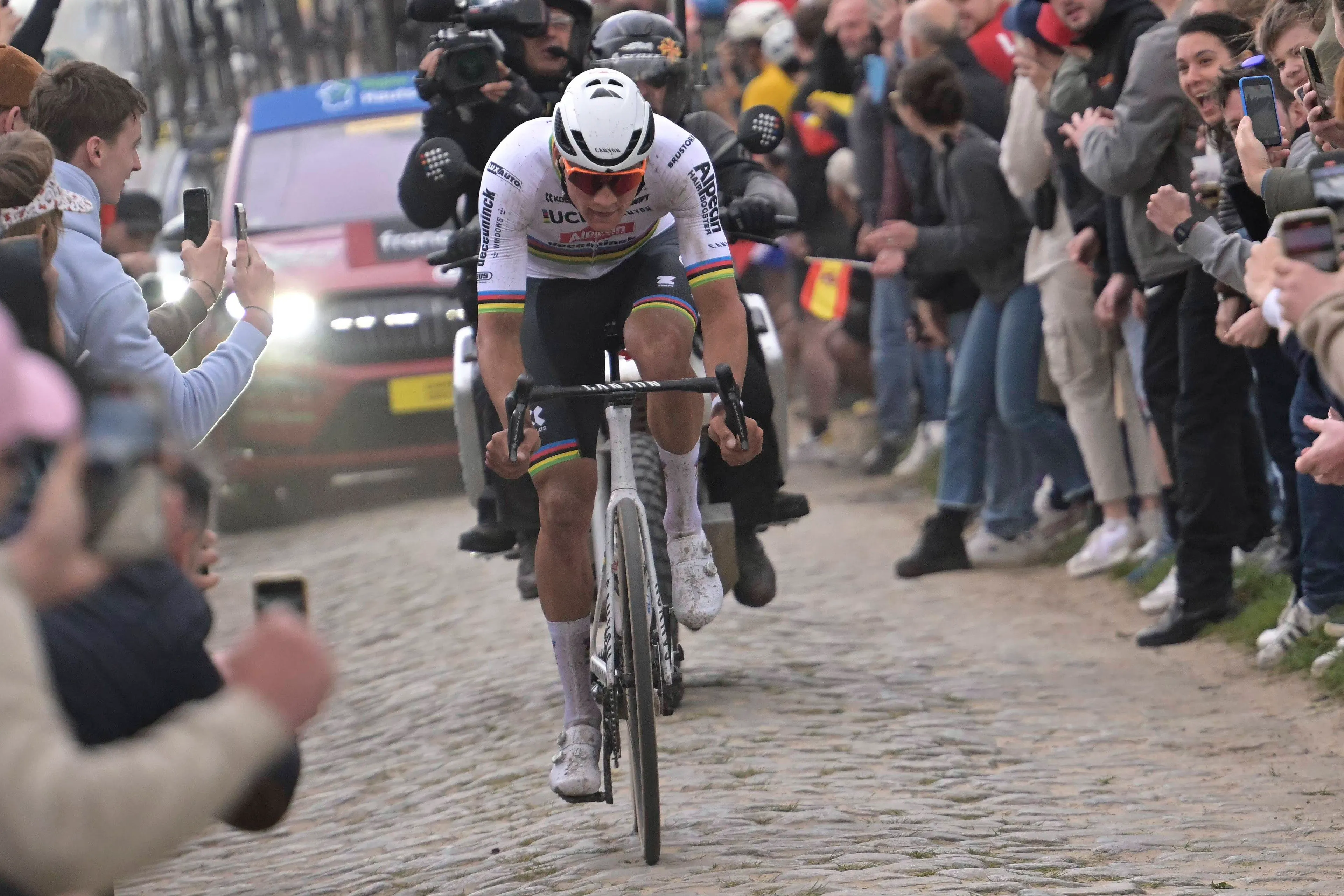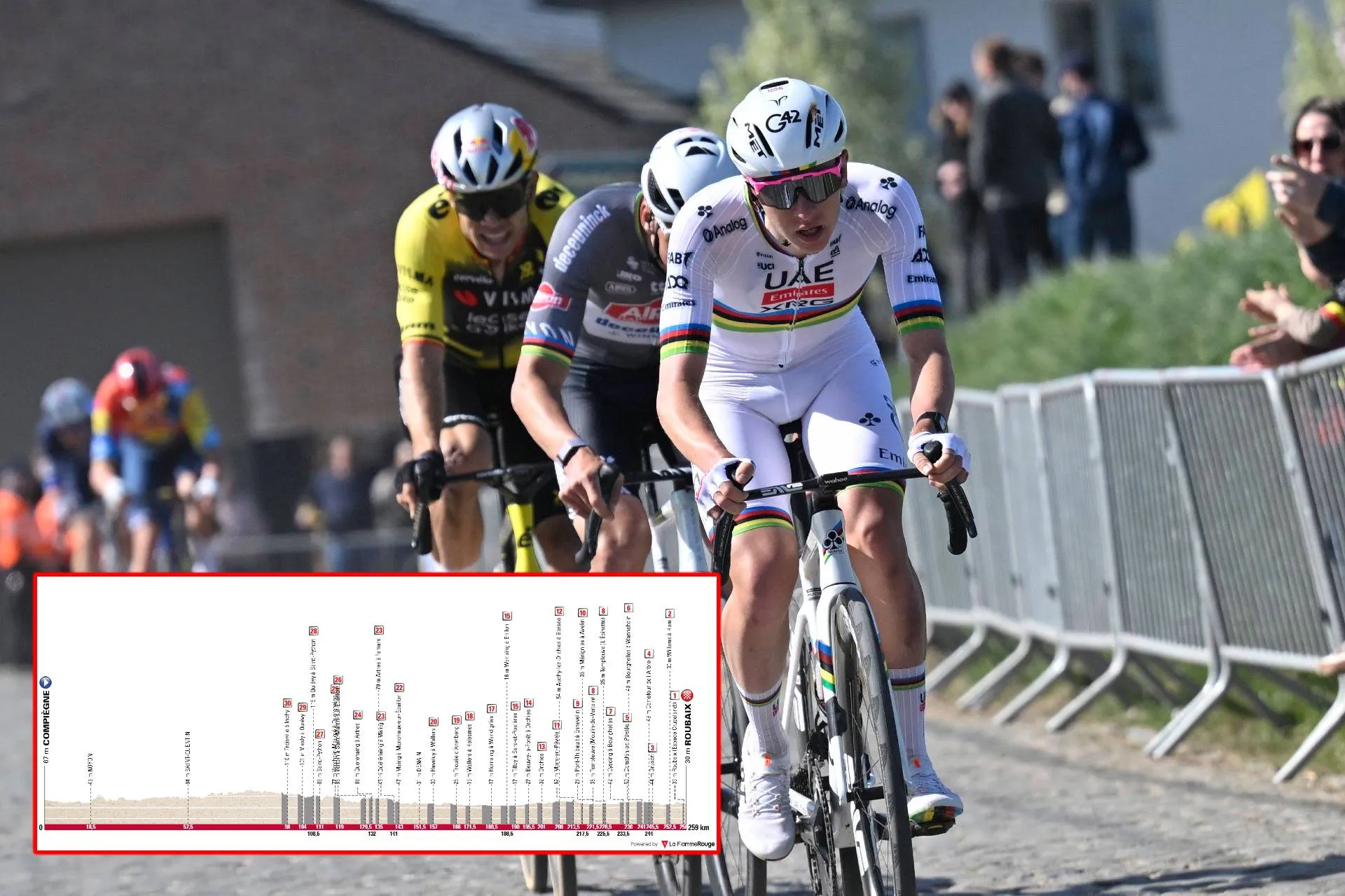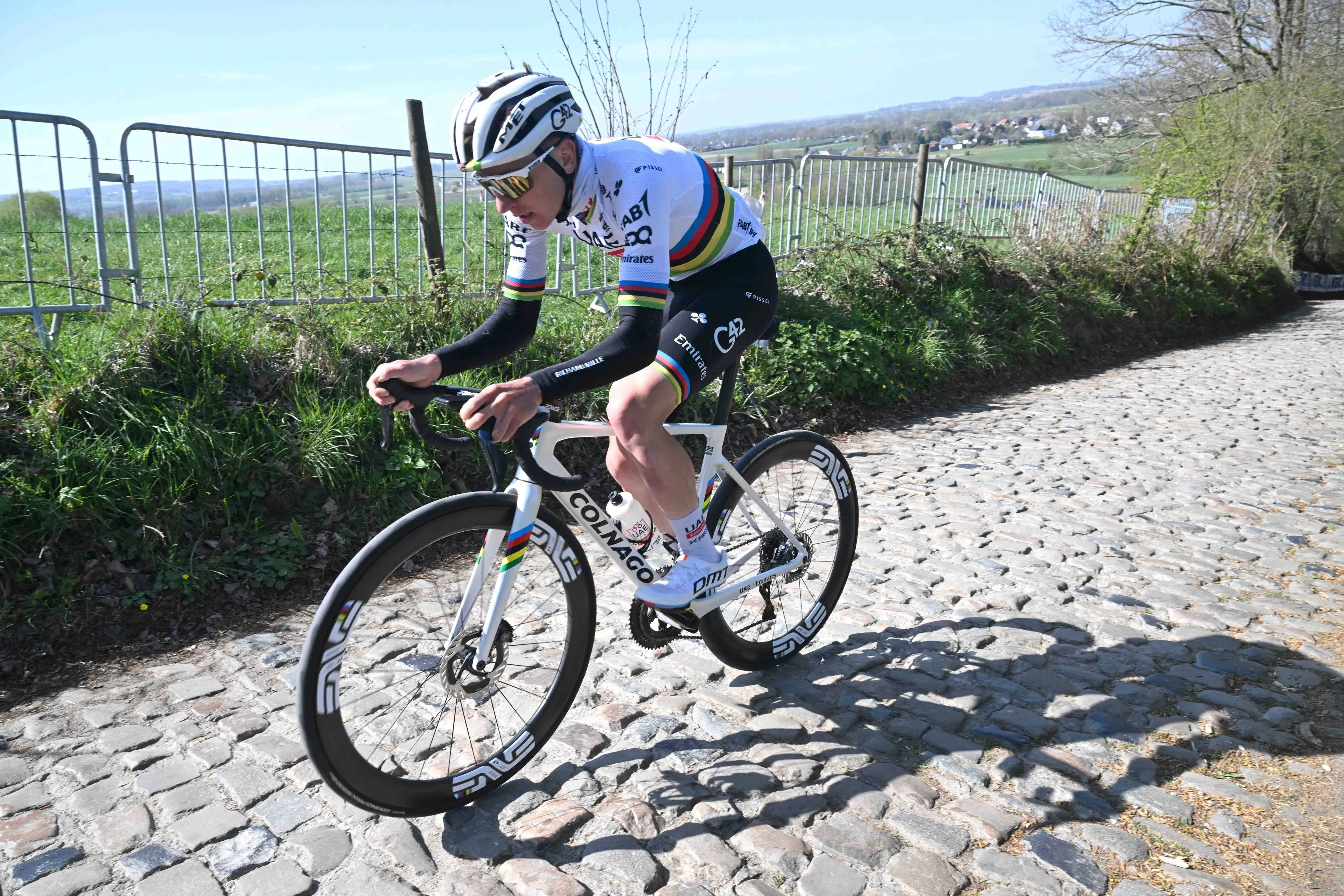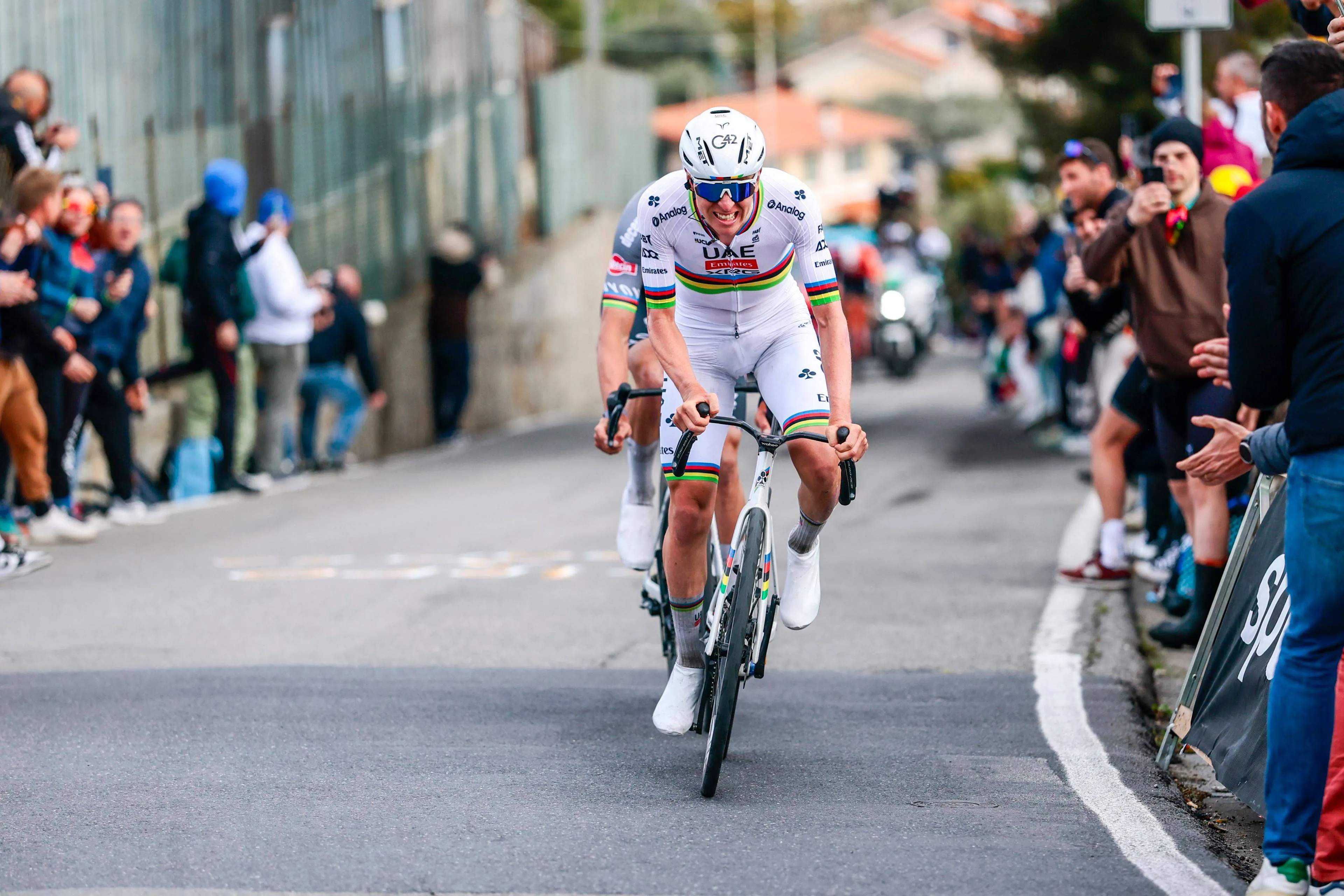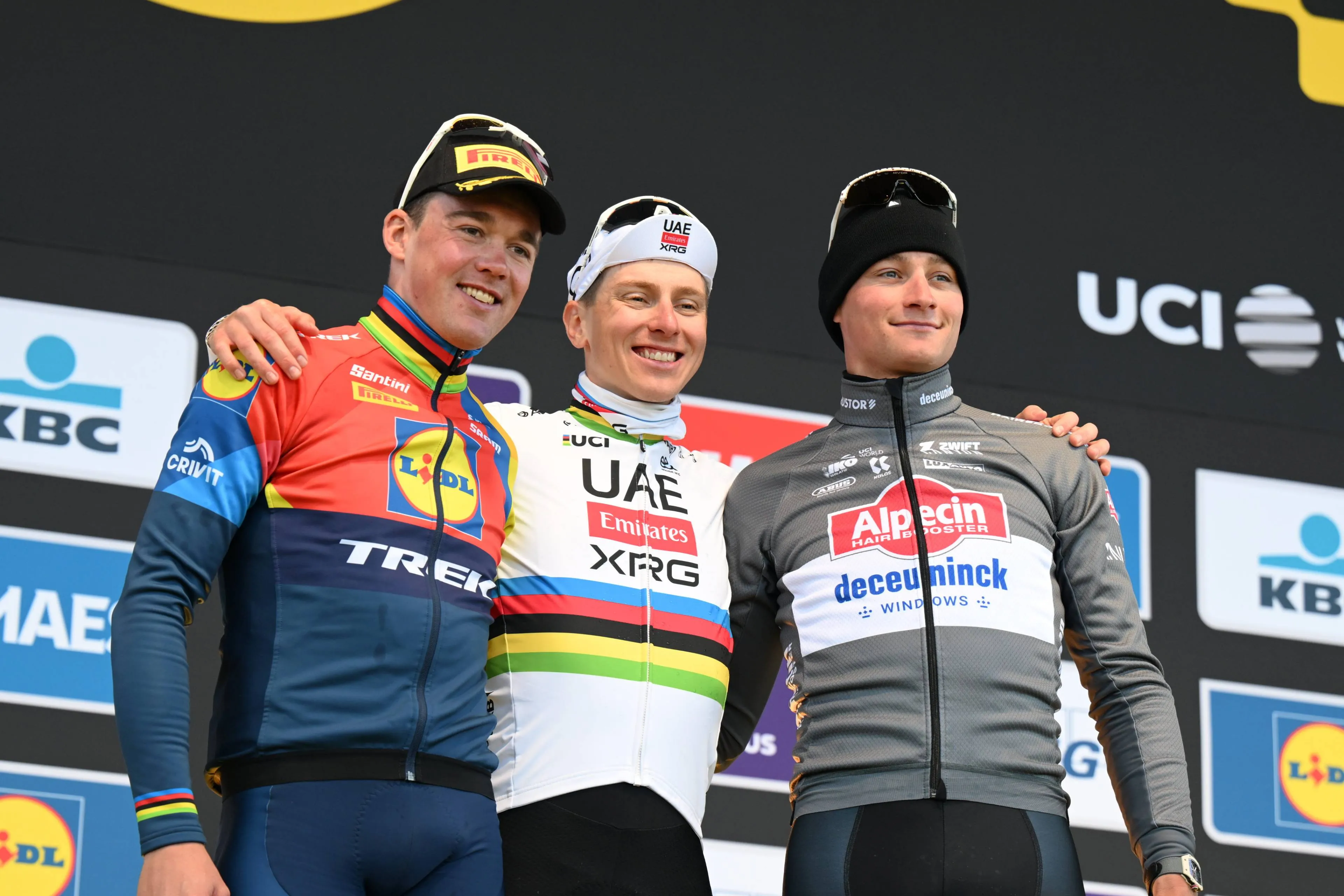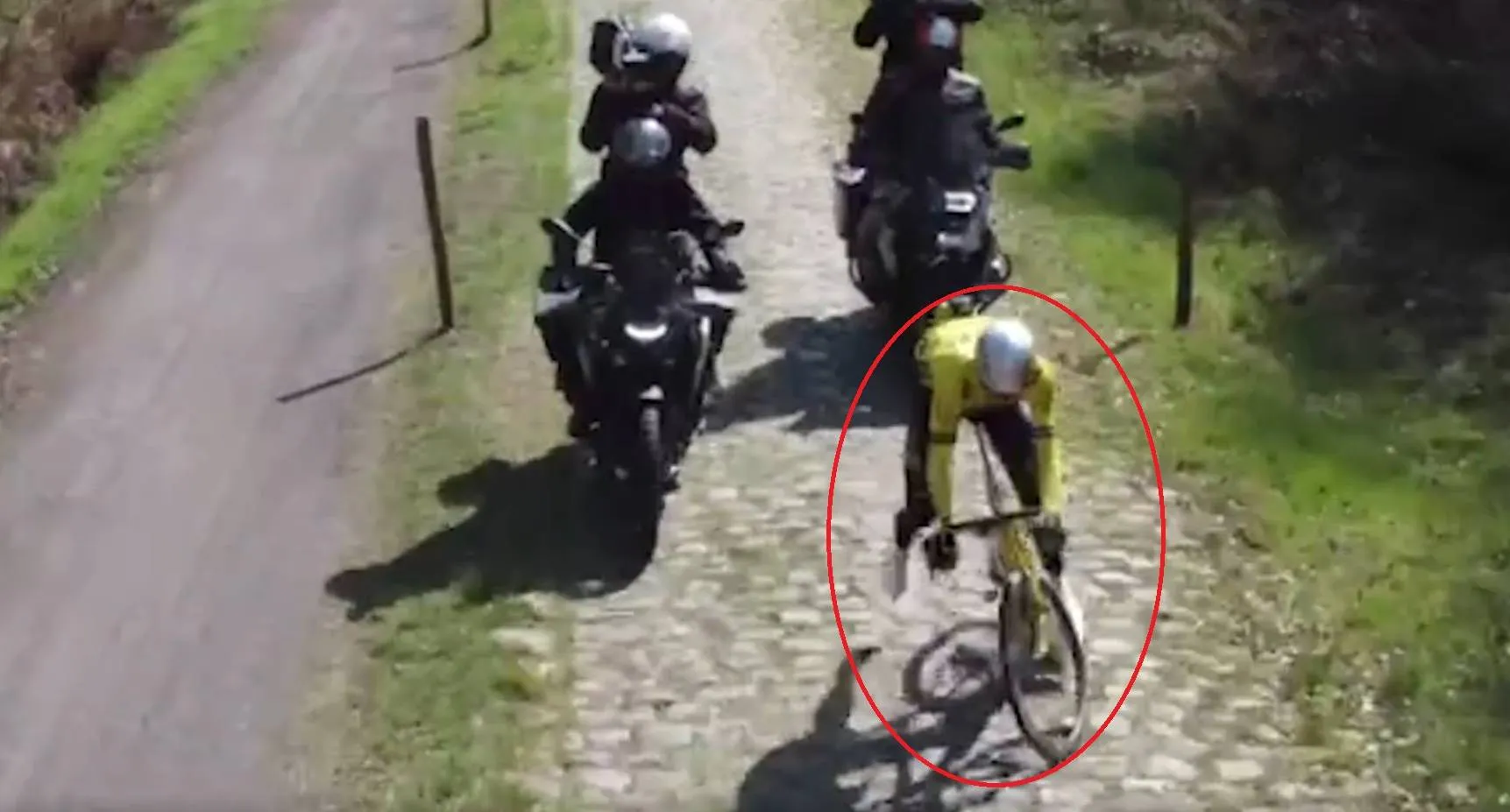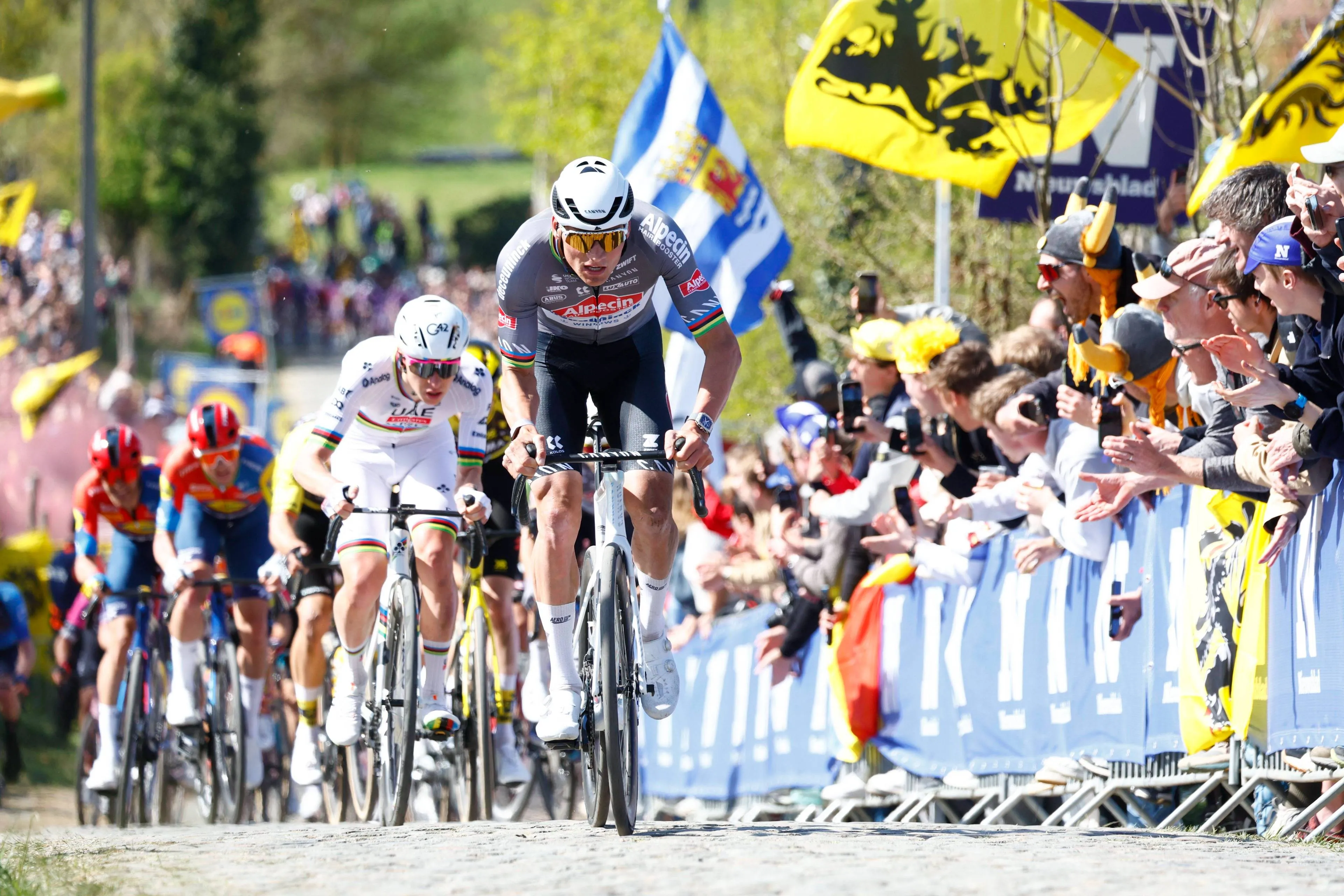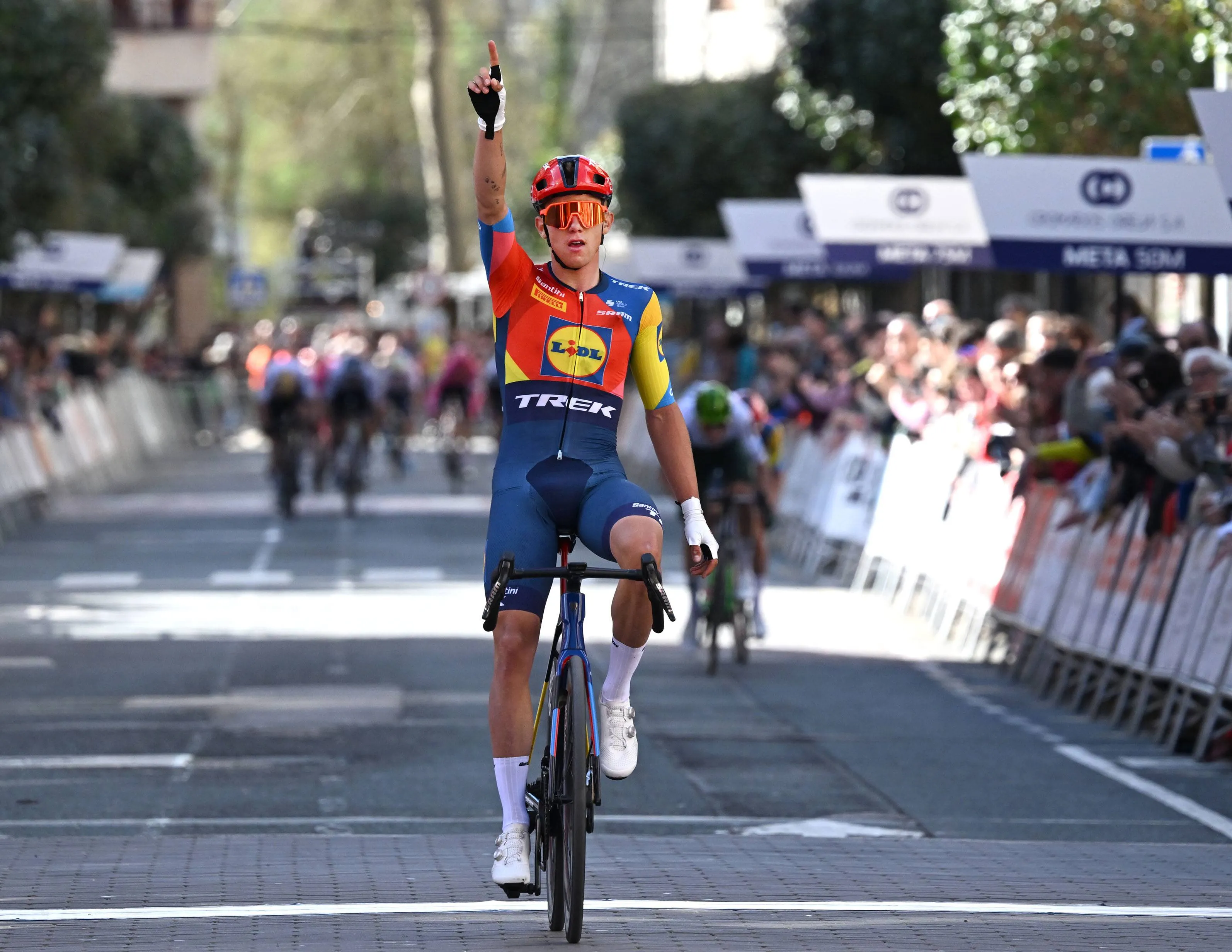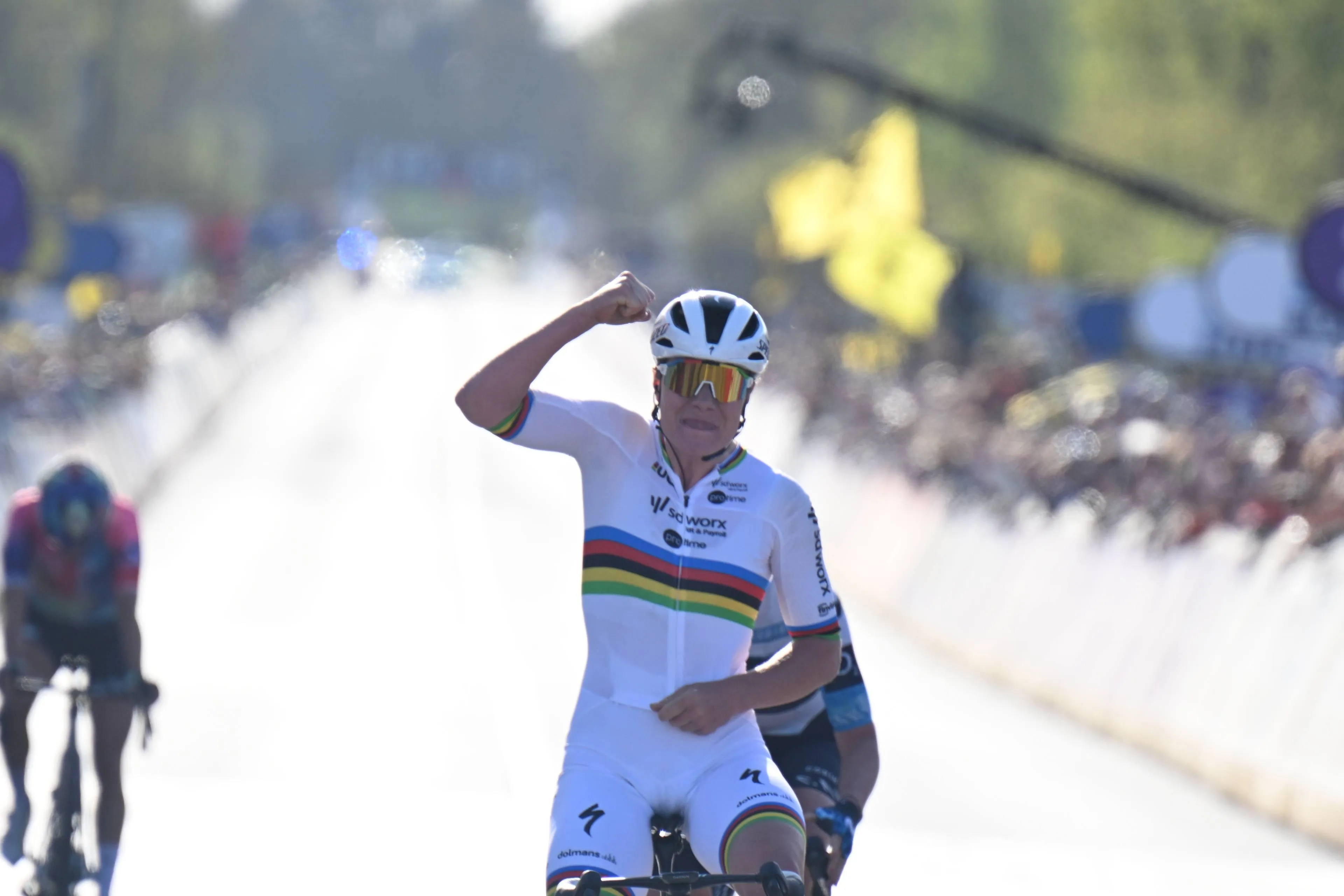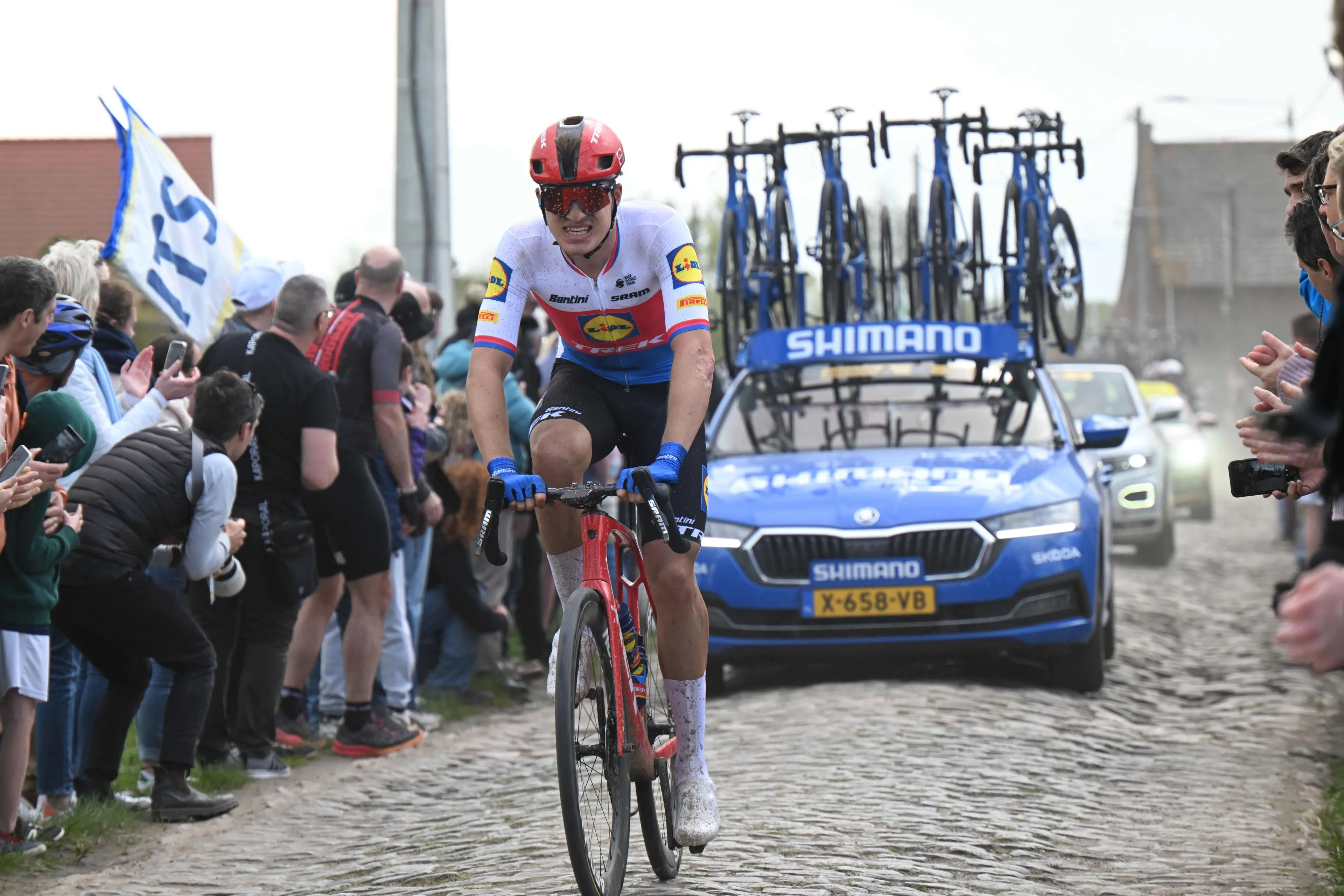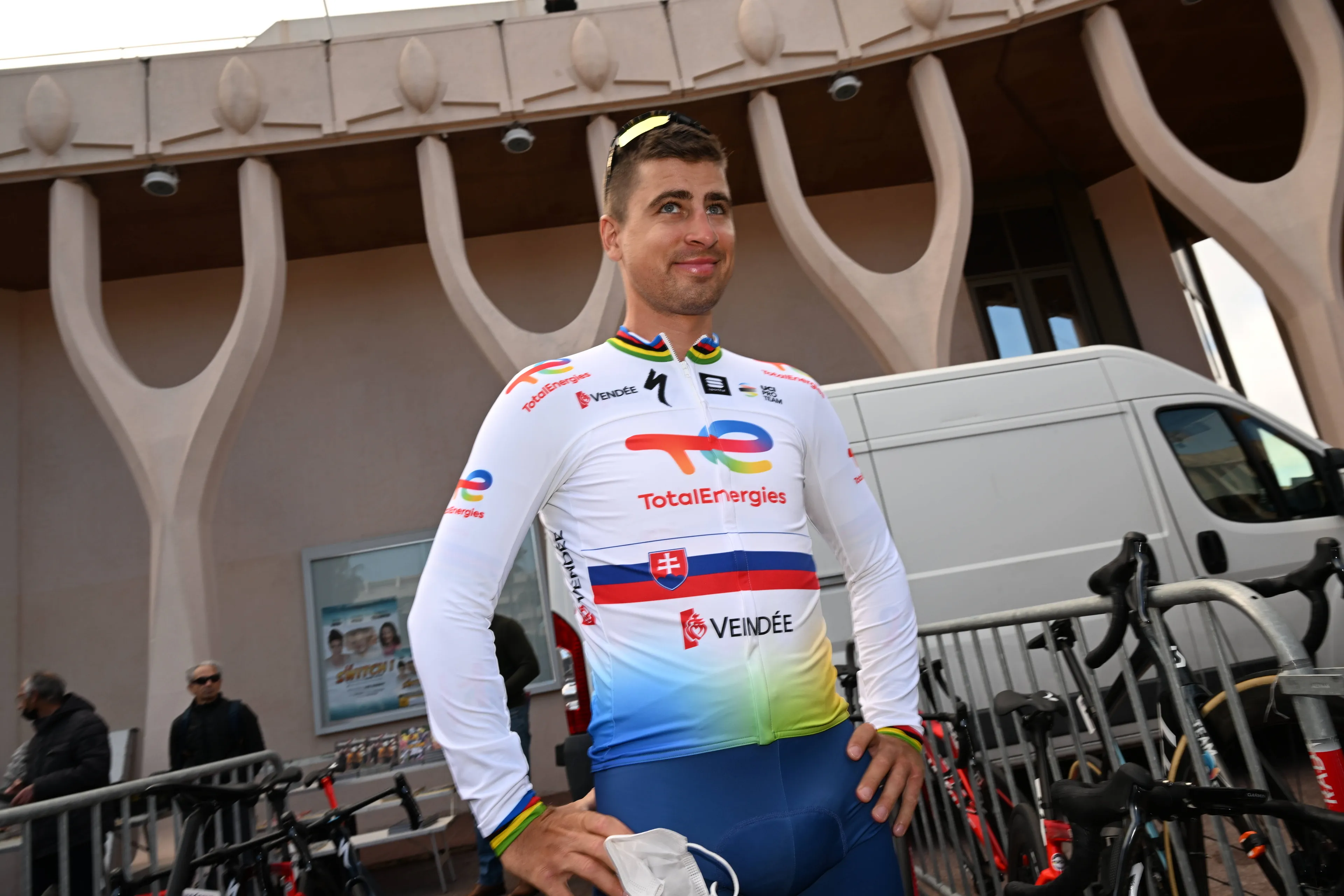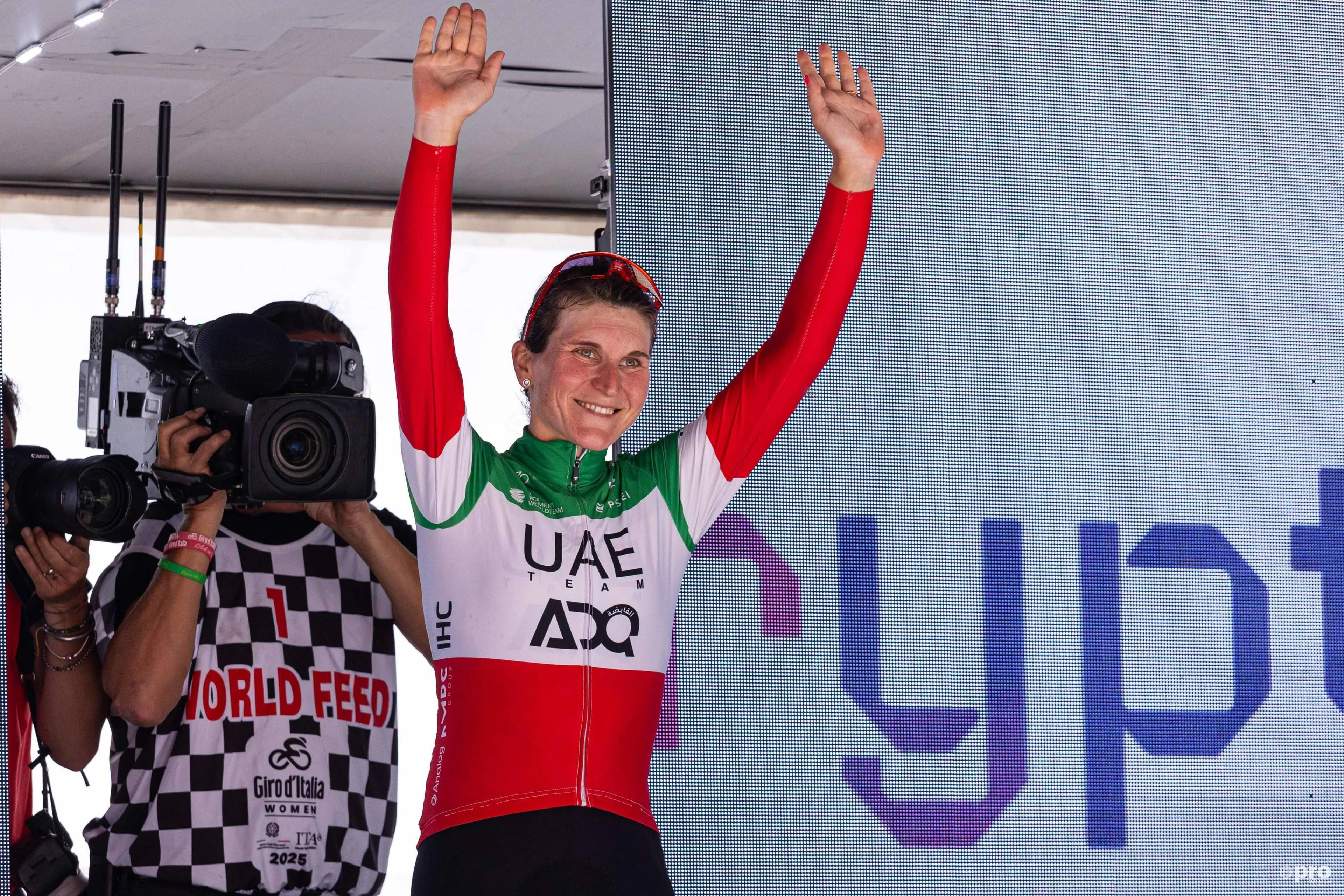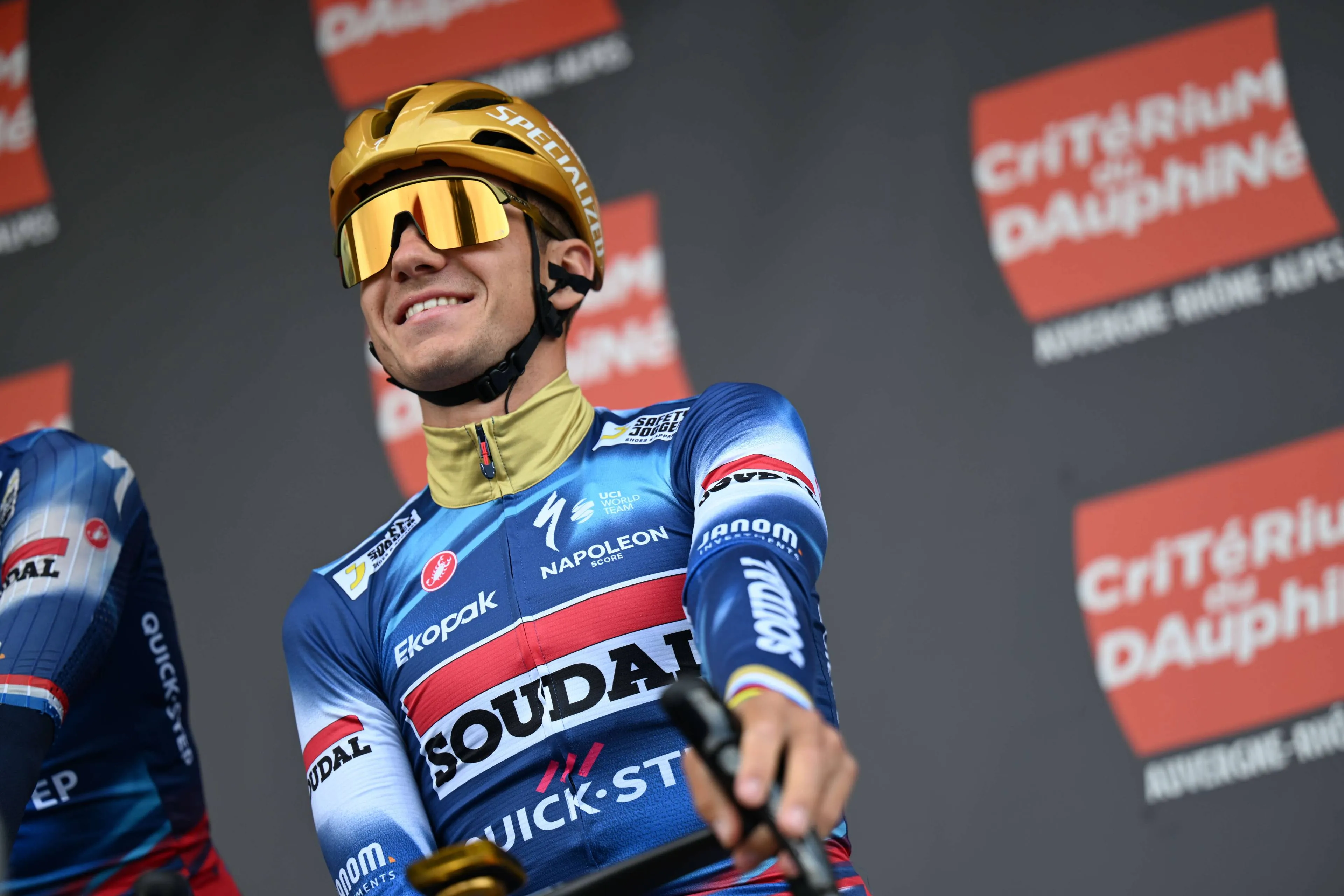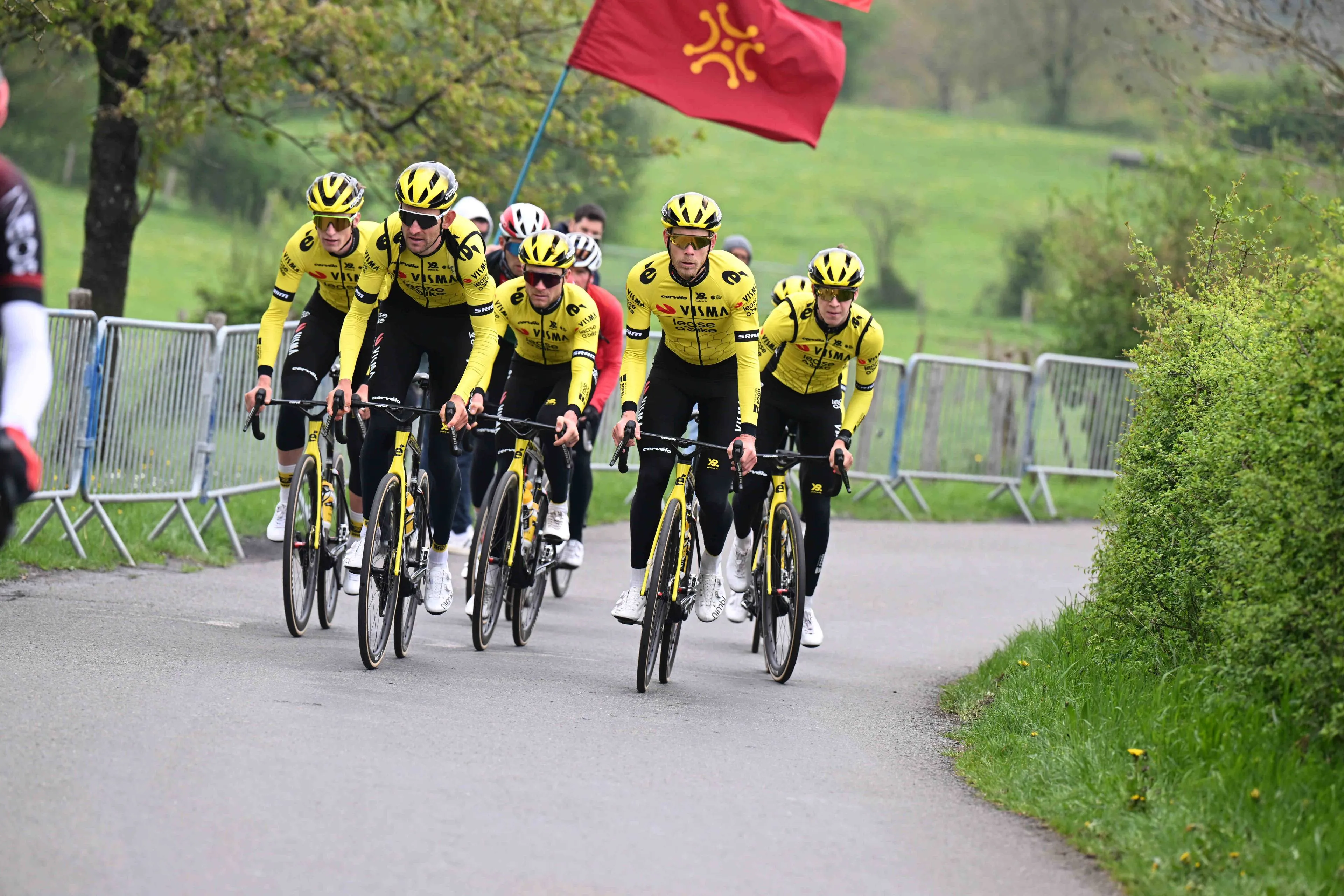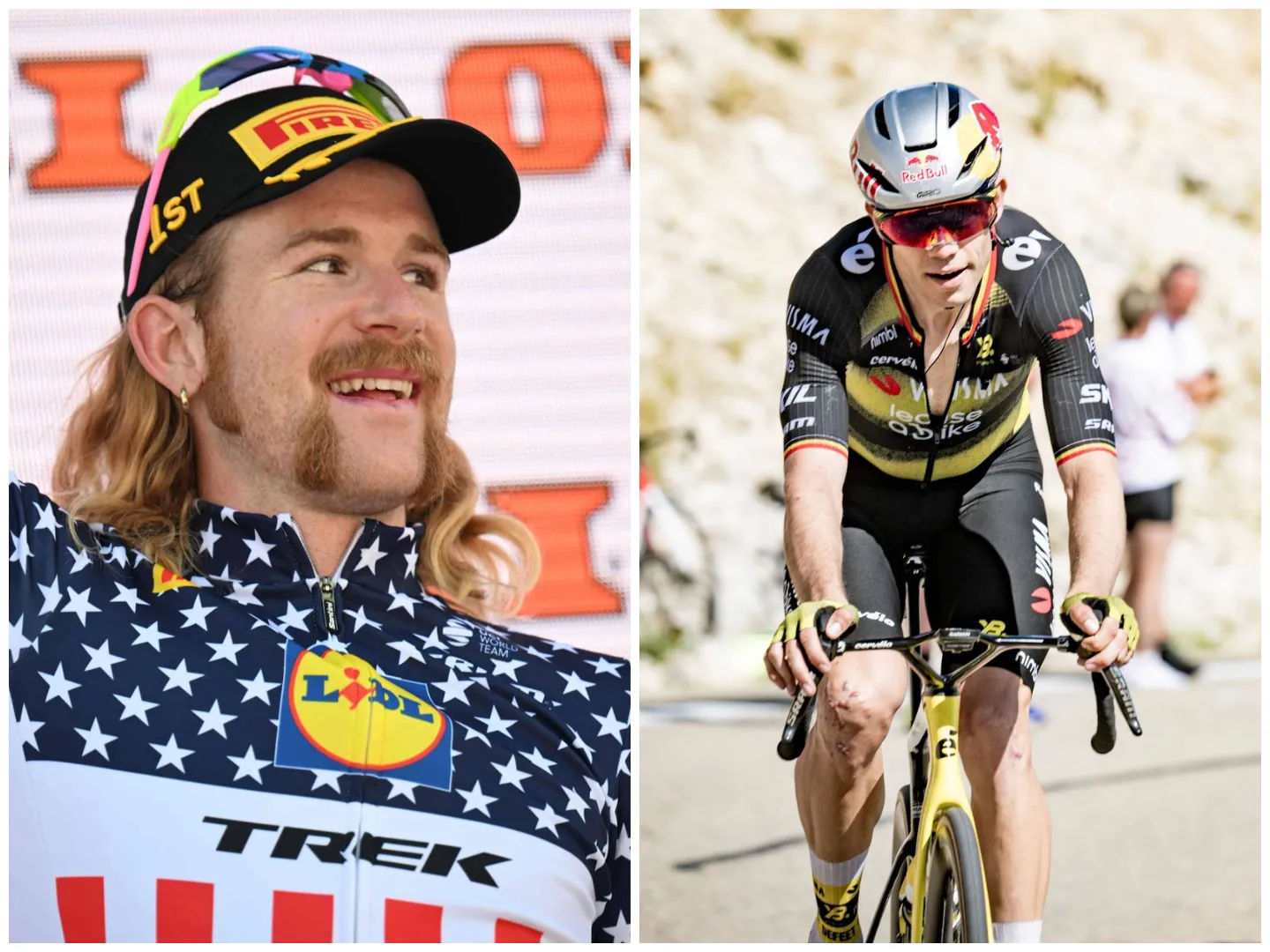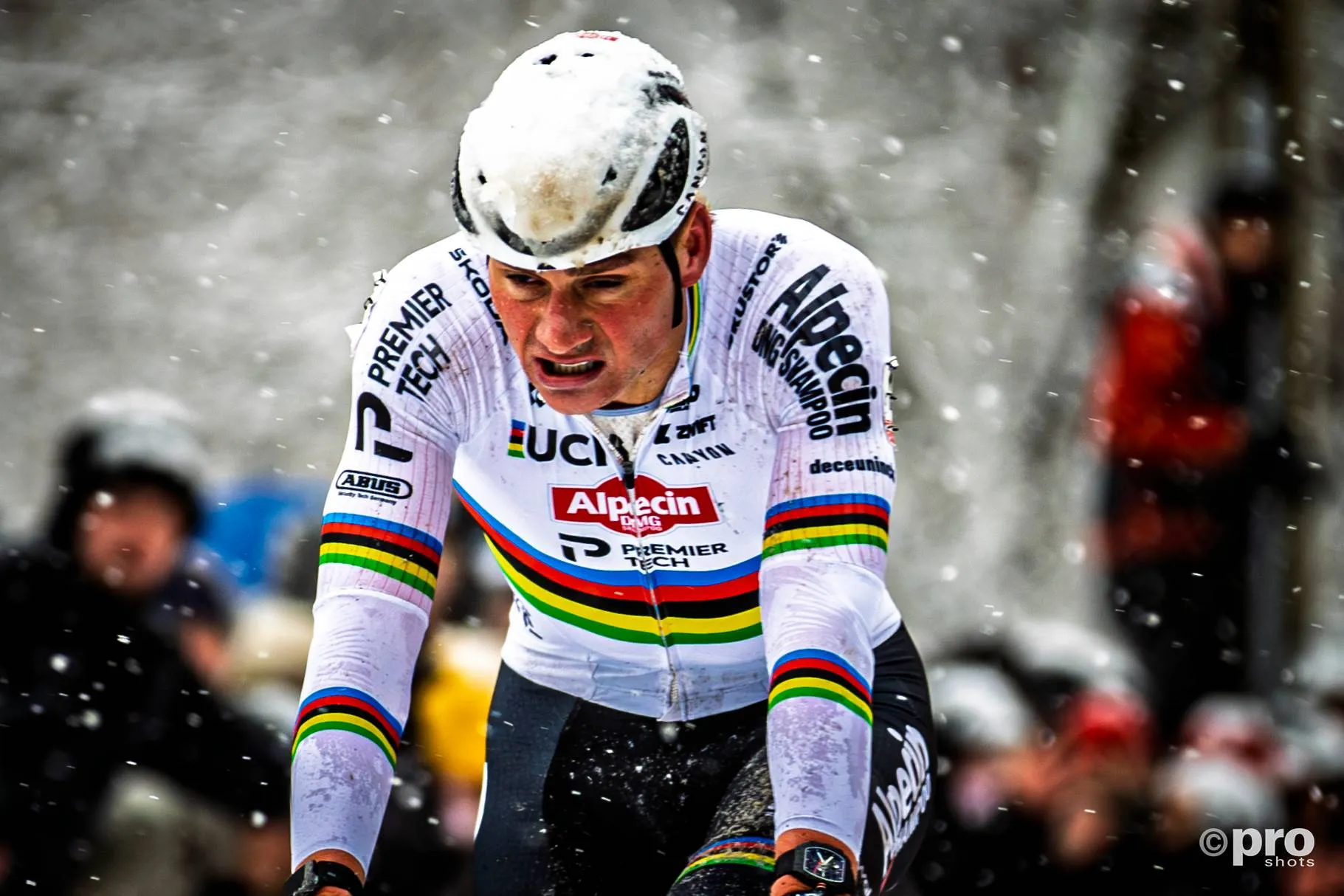ANALYSIS | Tadej Pogacar's date with destiny at Paris-Roubaix: Can he surpass the legend of Eddy Merckx?
CyclingFriday, 11 April 2025 at 12:00

This Sunday marks a moment in cycling history. The moment
we’ve all been waiting for. The debut of Tadej Pogacar at Paris-Roubaix. The
first time the sport’s most complete modern rider tackles the race known as the
“Hell of the North.”
Has there ever been a more anticipated debut at Roubaix?
Pogacar enters this race not only as a Monument winner or
Grand Tour champion, but as the man who has conquered the entire sport in 2024.
He stands on the cusp of rewriting what we thought was possible in cycling, and
his presence alone lifts this year’s Paris-Roubaix to something much bigger
than a one-day race. It becomes an event charged with historic potential.
Read also
Re-defining the sport
In 2024, Tadej Pogacar achieved the unthinkable: winning the
Giro d’Italia, Tour de France, and the UCI World Championships road race in a
single season. A modern-day triple crown that hasn’t been achieved in decades,
and only twice before by a male rider. In the process, he also won 12 Grand
Tour stages, leaving the scraps for everyone else.
No rider in the 21st century has achieved this. No rider had
even come close. The Giro-Tour double had been all but written off as a relic
of the past, until Pogacar made it real again. The World title crowned his
supremacy, but it’s how he won these races that adds further weight to his
legend. He attacked with panache, raced aggressively, and never settled for
simply defending a lead.
Read also
But somehow, even after all that, a win at Paris-Roubaix in
2025 might be more significant of them all.
Monumental form
What makes Pogacar’s debut even more fascinating is that
Roubaix is one of just two Monuments missing from his palmarès, the other of
course being Milano-Sanremo.
Last month, Pogacar targeted Sanremo with precision. He
climbed the Poggio like a man possessed, but it wasn’t enough, as another
legend of the sport proved too strong the day. Mathieu van der Poel outsprinted
him to take the victory and deny the Slovenian his dream.
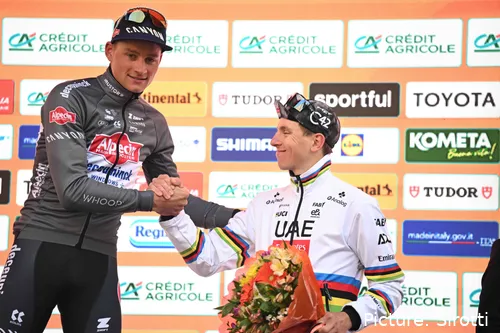
Van der Poel denied Pogacar at Milano-Sanremo
Before the race, Pogacar confessed that Sanremo is the one
he wants most. But perhaps that defeat stung so deeply that it inspired
something even more audacious: a shot at Roubaix.
Historically, climbers and Grand Tour general classification
riders have avoided Paris-Roubaix. The risks are immense. The cobbles are
brutal. The crashes are frequent. And the gains? For a light, stage-race
specialist, minimal. But Pogacar, true to form, sees an opportunity where
others see limits.
He doesn’t just want to be a winner. He wants to be
complete.
Read also
Beating Van der Poel: 1-1
That quest for completeness came one step closer last
weekend, when Pogacar finally cracked Mathieu van der Poel this spring and beat
him to win the Tour of Flanders for a second time.
It was the first time Pogacar had defeated the Dutchman this
spring. At Sanremo, Van der Poel had struck first. Remember, in 2024, Van der
Poel won Flanders and Roubaix in back to back weekends whilst donning the
rainbow stripes.
For years, we have marvelled at the rivalry between Pogacar
and Vingegaard, and Van der Poel and Van Aert. Little did we know, that the
greatest rivalry of the lot might just be Pogacar vs Van der Poel.
Read also
Now the score is level in 2025, at 1-1. The two titans of
modern cycling locked in a rivalry that evokes memories of Merckx vs. de
Vlaeminck, Boonen vs. Cancellara, and even Coppi vs. Bartali.
This Sunday could be the decider.
But Roubaix is not Flanders. The hills are gone. The cobbled
climbs of the Paterberg and Oude Kwaremont are replaced by brutal pavé sectors
that reward raw power and resilience.
Where can the world champion distance the big men?
Read also
That’s the question on everyone’s lips. Pogacar weighs
around 66kg. Former Roubaix dominators often tip the scales at nearly 90kg. As
Filippo Ganna, Wout van Aert, Mads Pedersen, and Van der Poel themselves have
shown, power matters here more than finesse sometimes. Positioning, brute
strength, and the ability to ride over jagged stones at 50km/h are
non-negotiable.
As former Roubaix winner Dirk Demol put it: “I would be very
surprised if he were to outride the rest.” The odds are against Pogacar in
every measurable way. But then again, so they were when he attacked 100km from
the finish to win the world title. So they were when he chose to attempt the
Giro-Tour double.
Pogacar exists to defy odds. To tear up the script.
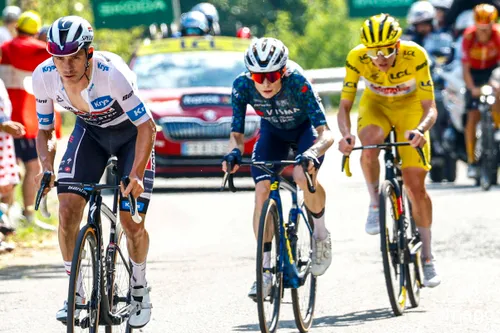
After the classics Pogacar will turn his attention to the Tour de France once again
So where could he distance the big men? The Arenberg Forest?
Mons-en-Pévèle? Carrefour de l’Arbre? These are the sectors where races are
lost, and where, if he's feeling as good as he did at the Tour of Flanders, he
might just find a way to win.
Let’s not forget: during the 2010s, the idea of a Tour de
France contender racing, and even winning, Paris-Roubaix was fantasy.
The era of specialisation was in full swing. GC riders were
built like climbers, their calendars were strictly managed, and they were
conditioned to peak in July and July alone. Racing cobbled Monuments, let alone
Roubaix, was off the table. Too risky. Too demanding. Too random.
Read also
That’s what made riders like Chris Froome and Vincenzo
Nibali so successful, but also comparatively limited in scope. Roubaix wasn’t
on their radar. It wasn’t supposed to be.
Then came Pogacar.
He first hinted at this change in 2022 with his audacious debut
ride at the Tour of Flanders. Then he won the race in 2023. In 2024, he’s added
the Giro, the Tour, the Worlds, and now aims for Roubaix. There’s no calendar,
no rulebook, no tradition too sacred for him to question. He is reshaping what
a cyclist can be.
This is more than just a race start. This is a statement.
Read also
Merckx vs Pogacar
If Pogacar does win Paris-Roubaix this weekend, the
comparisons to Eddy Merckx will no longer be poetic, they’ll be statistical.
Merckx is one of the only riders in history to have
dominated Monuments and Grand Tours in the same breath. He was a winner of
everything, and in 1975, delivered one of the most impressive monument seasons
in cycling history: he won Sanremo, Flanders, and Liège, finished second at
Roubaix, and sixth at Il Lombardia.
Read also
No one has come close since.
But now, with Pogacar having finished third at Sanremo,
winning Flanders, and preparing to ride Roubaix, Liège, and Lombardia later
this year, the record could be threatened. He has already won Liège twice and
remains undefeated in Lombardia for four straight seasons.
In fact, according to Cycling Statistics on Twitter, Pogacar
is on course to achieve the best single-season Monument campaign in history if
he performs at Roubaix. Just racing all five Monuments in a single season is
rare enough. Contending for wins in all five is unprecedented.
Read also
We’ll throw in one caveat here, that may be a good omen for
Remco Evenepoel and Jonas Vingegaard. Merckx’s 1975 season was one of the few
years he did not manage to win a grand tour…
Can Pogacar win all five?
Only three riders in history have won all five Monuments:
Rik Van Looy, Eddy Merckx, and Roger De Vlaeminck. It’s a feat that has eluded
even the most versatile champions in the modern era.
Pogacar already has Lombardia (4x), Liège (2x), Flanders
(2x). He was on the podium at Sanremo. Roubaix is the last frontier.
If he wins, he joins a club of immortals, and potentially
puts himself on a path to become the greatest rider of all time.
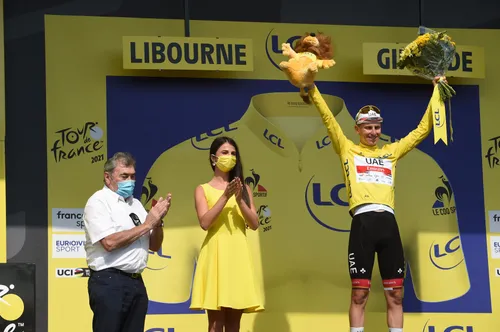
Pogacar is chasing the greatness of Eddy Merckx
The difficulty of this cannot be understated. Cobbles are
unpredictable. Weather changes everything. Crashes are a constant threat.
Mechanical issues can destroy a race in seconds. And the competition is brutal,
Van der Poel, Ganna, Pedersen, Küng, Van Aert, Philipsen, and others will not
make it easy.
But that’s what makes Pogacar’s attempt so meaningful.
He is willing to risk everything. His reputation. His
record. Even his body.
Just for a shot at Roubaix.
Read also
If Pogacar succeeds at Roubaix, it will do more than rewrite
the record books. It will change cycling culture itself.
For years, specialisation has ruled the sport. Riders are
identified young and funnelled into specific roles: sprinter, climber, classics
man, time trialist, GC leader. Rarely do riders cross disciplines or attempt
the impossible. Calendar planning is rigid. Risks are minimised.
But Pogacar is challenging that orthodoxy.
Read also
In 2024 alone, his success at the Giro, the Tour, and the
World Championships has already inspired others. More riders are now planning
to attempt the Giro-Tour double next month. More GC contenders are being urged
to try the Classics. Even sprinters are reconsidering their long-range
calendars.
The limits are evaporating.
Everything on the line
Of course, with all of this comes pressure. Enormous
pressure.
Roubaix is merciless. It humbles the greats. Tom Boonen has
four wins, but also suffered brutal defeats. Peter Sagan won once, but crashed
out several times. Cancellara, Vanmarcke, Van Aert, all have tasted both glory
and heartbreak here.
Read also
Pogacar is stepping into this world for the first time. And
unlike Flanders, there’s no safety net of climbs to exploit. This is flat,
fast, and fiercely physical.
But that’s what makes it so compelling.
This Sunday, Tadej Pogacar will attempt something almost no
one thought possible. He’s already conquered the high mountains, the week-long
tours, and the Monumental climbs of Liège and Lombardy. He’s outpowered the
sprinters. Outsprinted the climbers. Outwitted the tacticians.
Read also
Whatever happens on Sunday, one thing is already clear:
Pogacar has changed cycling.
Even if he doesn’t win Paris-Roubaix, the fact that he’s
racing it at all, after a Giro-Tour double, after a Flanders victory, after a
World Championship title, is a legacy in itself. He is redefining greatness.
And if he does win? We may look back on this Sunday not just
as the day Pogacar conquered Roubaix, but as the day cycling itself entered a
new era.
claps 3visitors 3
Just in
Popular news
Latest comments
- It was pretty well documented that year, as UAE were not looking for excuses, but to make the best of a worst-scenario wrist-injury situation and deliver something for their sponsors after the previous year's defeat. So Gianetti announced an in-form Adam Yates as co-leader on the eve of the Tour, as 'there are no miracles in cycling' - if you can't put in the training, you can't win. Sean Kelly basically agreed, based on his own experience.Hills3309-02-2026
- No doubt Lemond knows of which he speaks. I do believe though, and I feel modern science and sports science supports this, the years of covert "doping" were as harmful to the riders than beneficial, if not much more harmful. All of these riders were guinea pigs with all sorts of unknown medications, dosages, effects, if any, positive or negative. The "physicians " using these research drugs and off label medications were 100% experimenting on everyone and everything. They absolutely did not have any tried and true method to guarantee any result, let alone any safe and beneficial result. While there certainly was a lot of cheating, the effects of the cheating is nowhere near as simple as many of the athletes remember or imagine. There were a lot of placebo results, even if it didn't put you in a hospital. It's also a contributing factor to the current discussions around " you mean to claim a non doped rider today can go faster than a doped rider from 25 years ago?" when we never stop to think just how clapped those road side drugs practices were. There was so much experimenting with very questionable substances by people with very questionable credentials, they were as likely to kill someone as make them perform better. That didn't stop people like Armstrong and company from cheating, but it does explain some of his bafflement at how modern training, nutrition and equipment can erase his times. Poor old Lance was probably not getting the magic he was paying so much money for. He was a fool on multiple levels.Barry09-02-2026
- Still, it does seem that Tadej's injuries are always overstated. His knee swelling was just a minor injury, and can't be an excuse for getting dropped by Wout (who was still recovering from worse injuries in 2024). The same goes for his Luik-Bastonaken-Luik wrist injury. Maybe it's because he suffers so few
 Rafionain-Glas09-02-2026
Rafionain-Glas09-02-2026 - His criticisms of the current crop of unhuman talent racing today is ridiculous of course, but let's pause and get real for a moment shall we?: 512 wins. My God, that speaks for itself, absolutely incredible. No rider in the past several decades can touch that, outside of Merckx himself obviously. But to be fair, MVDP and Tadej aren't done either, so time will tell. Regarding his CX comments, he is just attempting to defend his brother's honor, I get it. Seeing his record beaten in the absolute, most dominant fashion has to hurt, but that's normal. At the same time however, his criticisms of MVDP are pretty weak. Last time I checked he can absolutely sprint with the best of them. Furthermore, he has zero issues dropping everyone on the 22+% Koppenberg, nevermind soloing away from the pretenders to huge time gap victories in most of his races from Roubaix to every single CX race this year and more. It leaves little doubt that the man can certainly time trial when he needs to. It's arguably a better measure of his actual ability vs creative uses of drag cheating, wind tunnel friendly, new technologies we see utilized in formal TT niche settings. I would think this fact would appeal to Rog DVMK, given the comparitively limited availability of wind tunnel tech to riders of his era. His unapologetic, outspoken, fearless defiance of the popular fanboy narratives is born of the same mentality that made him such a fantastic racer in his time. Anything less would have seen him washed out with the rest of the "also rans". He is simply frustrated by the fact that MVDP is as good as he (a classics master) and his brother Eric (a CX master) combined!urbantoreador08-02-2026
- Jews in Jewllywood just wanna make money. How about the bio-film on Melania - the Lance film will crater similarly.bike-anarkist08-02-2026
- Unusually well co-ordinated result for Belgium.Mistermaumau08-02-2026
- I don’t know, and you don’t know, how it affected him or not. Tadej said it did, and he was not anywhere near the same rider as in prior wins or subsequent wins. so I have to think it did affect him. Remco crashed far before LBL, and it affected his TdF too (last year). It was a winter crash. And yes, huge props to Jonas for his comeback following his crash. two things can be true. Tadej was affected and Jonas also did an amazing ride.mij08-02-2026
- I guess by "clean" he means "only on amphetamine"?aphg108-02-2026
- Jeez, so many things to boycott these days.Mistermaumau08-02-2026
- Vlaeminck seems to know almost nothing about modern day cycling his comments about Pogi were laughable this is just more of the same.GeoffM08-02-2026
Loading
Write a comment
